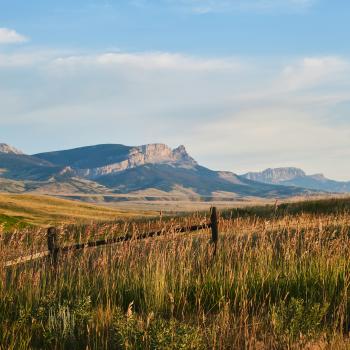Today is the day when Americans gather to celebrate the Thanksgiving holiday. We aren't alone. Canadians have already had their celebration. Many nations and cultures have thanksgiving celebrations at various times. But today most of us will gather with others to overeat and to give thanks.
Overeating as a sign of gratitude is an ancient, cross-cultural tradition. I suppose that demonstrating the plenty we have received is a natural part of giving thanks for that plenty, though fasting has also been a common way of expressing thanks. Today in my house, fasting won't be part of our way of showing gratitude. Perhaps tomorrow.
In many families and other groups who gather to celebrate this holiday, it is customary to take a moment for each person to express their gratitude. Many of those expressions are heartfelt. But sometimes our expressions of gratitude include or tend in the direction of the kind of thanksgiving we see among the Book of Mormon people, the Zoramites: God, I thank thee that I am not like others, that I am one of thy elect, that I am not a victim of the foolish traditions of my brothers and sisters, that I have been blessed for my righteousness while "they" have been cursed for their failure to be righteous. (See Alma 31:16-17.)
The likelihood that these thoughts are said aloud or even silently to oneself is slim. But I wonder how often they are implicit in our thanksgiving. I fear for the number of times that such ideas have crept into what I intended to be sincere expressions of my thanks. Pride is one of the most difficult sins to avoid, and it may be particularly difficult to avoid when I think about my blessings.
So with some fear and trembling and in no particular order, I list some of the things for which I am grateful.
I am thankful for the relative ease in which my family and I have always lived, even when we were by American standards poor or at least financially stressed.
I'm thankful for Janice, who married me almost forty-two years ago. We have gone through all kinds of trials, but none of them have strained the bond we have felt for each other since we first met. It is impossible to say how grateful I am for that, for her strength and commitment, and for her clear-headedness that has saved us from my impetuousness more than once.
I'm grateful for our four children and their significant others. Each of our children has chosen a partner well, and we are proud of them for having done so. Each has learned to live independently without severing the strong connection to their siblings and parents. We are not a fairy-tale family, but my children are wonderful people for whom I'm deeply grateful.
I'm also especially grateful that our children are such good parents. It shames me sometimes when I see their relations to their children and think of what kind of father I was. But better that shame than the disappointment of seeing them hurt their children in some way.
And of course I'm thankful for our grandchildren, for the futures that they promise, for their individual personalities, for the way they love and care for each other, for the shyness of some and the exuberance of others. I pray that God will bless me to live long enough to see them all become adults.
My mother, too, should be mentioned. She was very young when I was born, and now we have both grown old. I'm grateful for her presence in my life. That presence has sometimes been from a distance, but it has been there even when we were apart. My gratitude for her is joined by my prayer that she might be physically and spiritually comforted as she suffers what old age brings.
I thank God that I have freedom of speech and freedom of religion, freedoms that cannot be disentangled from one another. I can say things that some may hate to hear or read. I can speak my mind without fear of legal repercussions. I can worship how, where, and what I may.
I worry that some may wish to limit my freedom of religion by pushing religion into the sphere of the merely private. I worry that others may wish to limit my freedom of speech by attacking the speech of those with whom they disagree, shouting them down in one way or another. I pray that we will avoid both temptations.
I'm grateful for the decency of my neighbors. I live in a neighborhood that has, within close proximity, the old and the young, the single and the married, the rich and the not-so-rich, Anglos and people of color, speakers of various languages. I am lucky to live in the kind of neighborhood that is rapidly disappearing (if it was ever common) as people cluster together economically and racially. There are many differences between the people in my neighborhood, but they have in common that they are good people.





